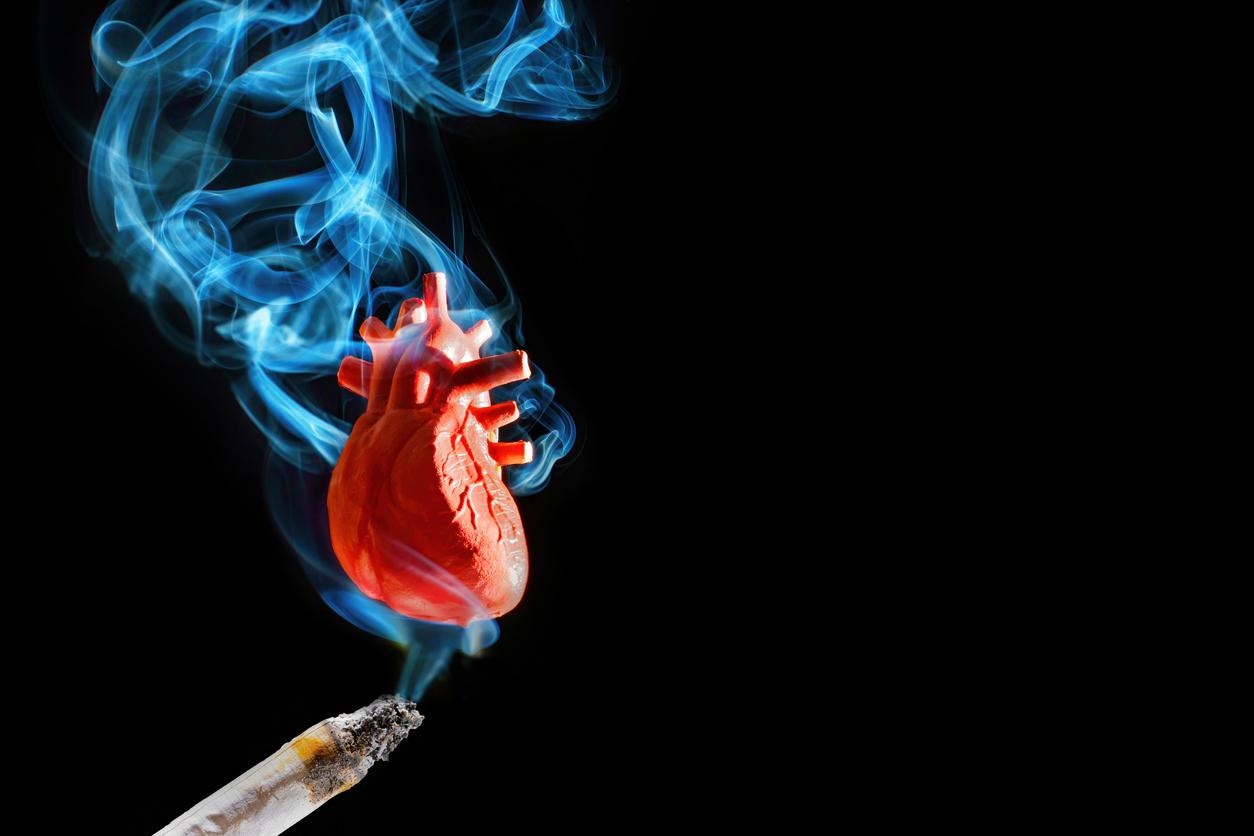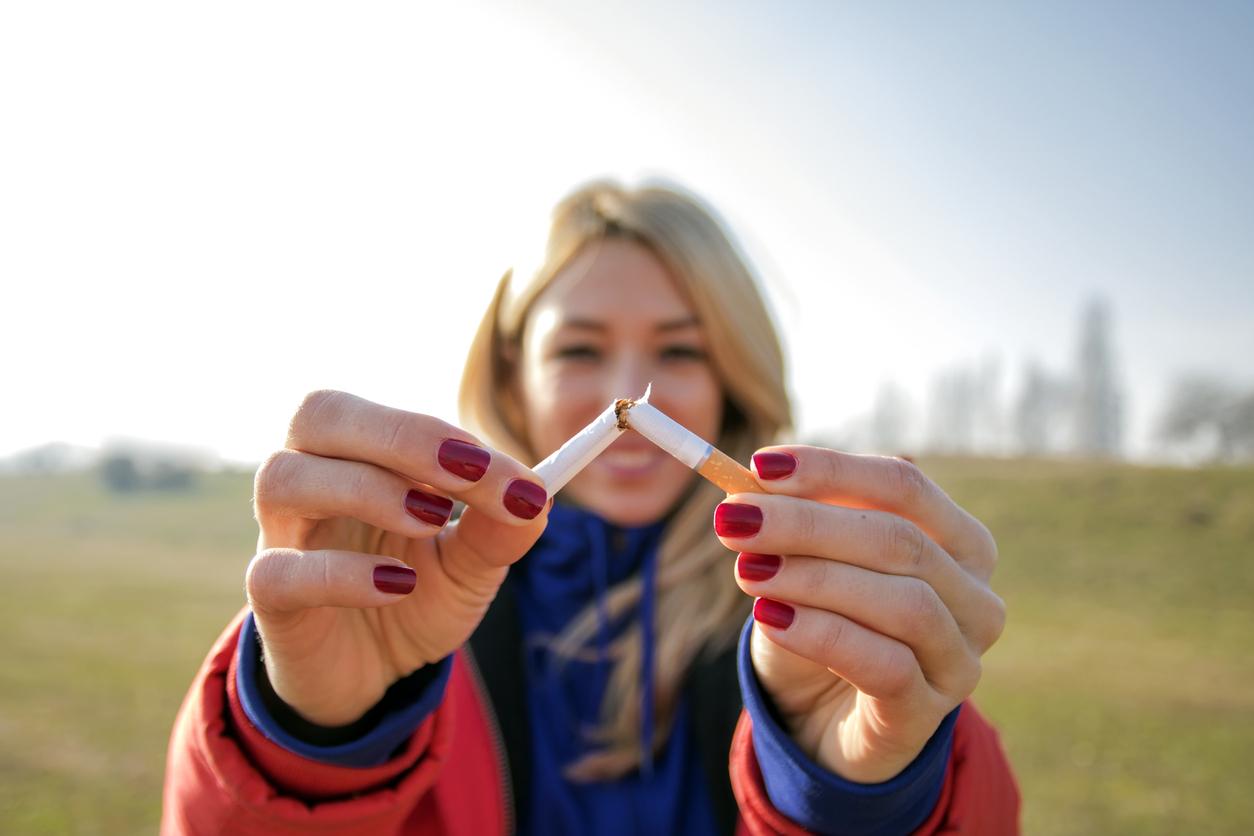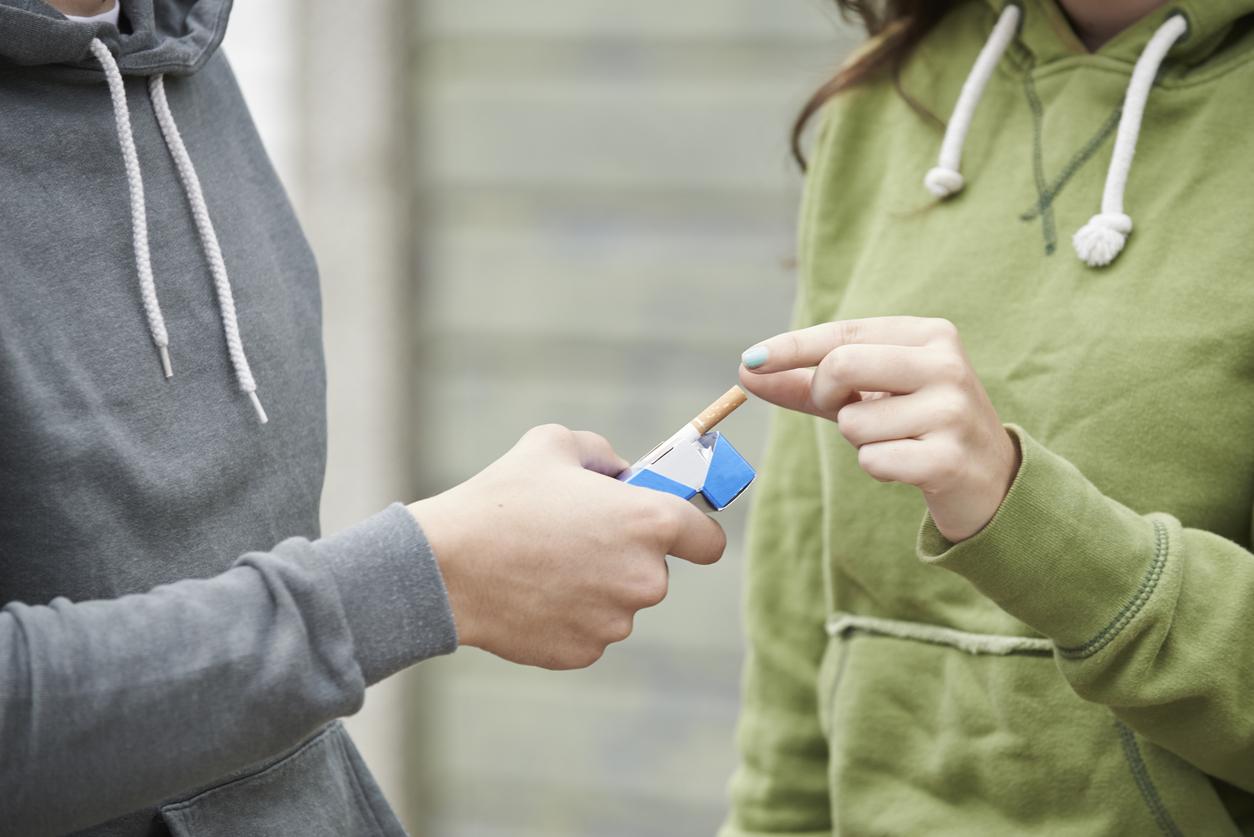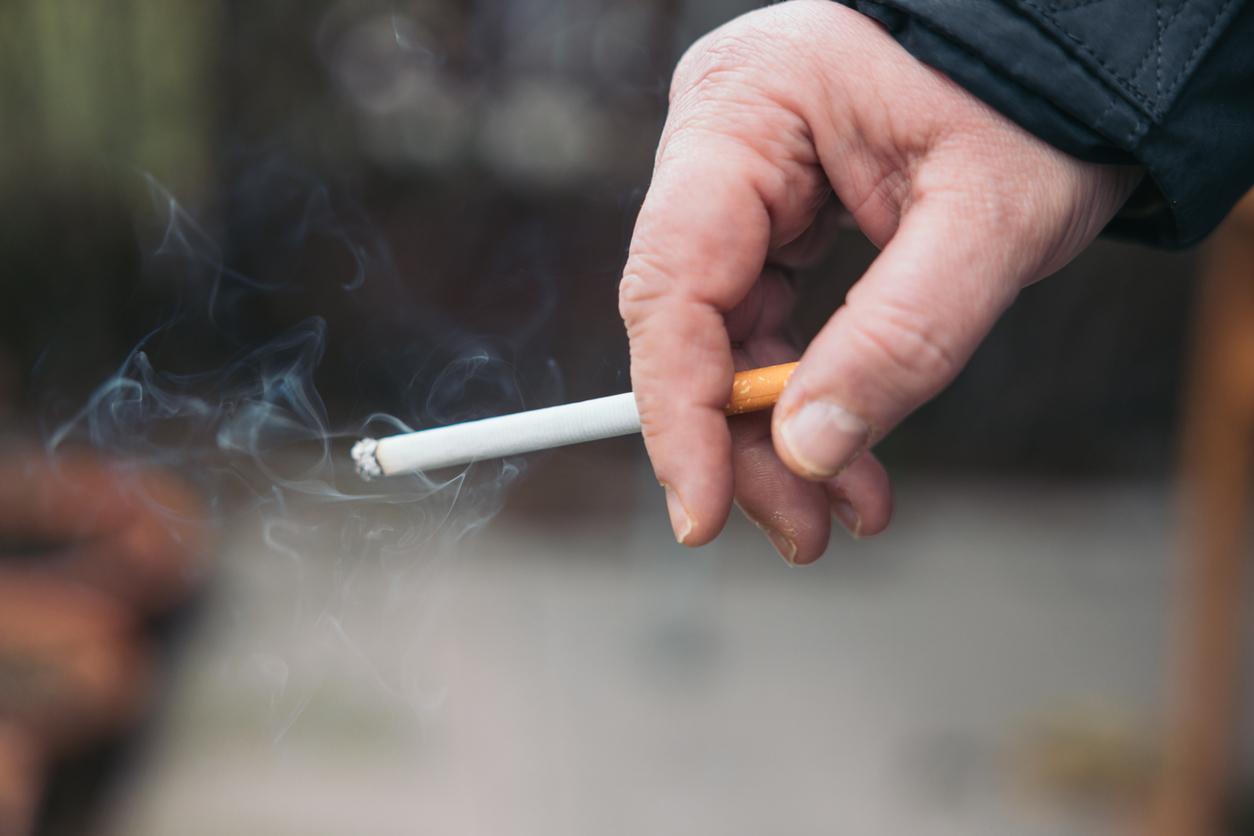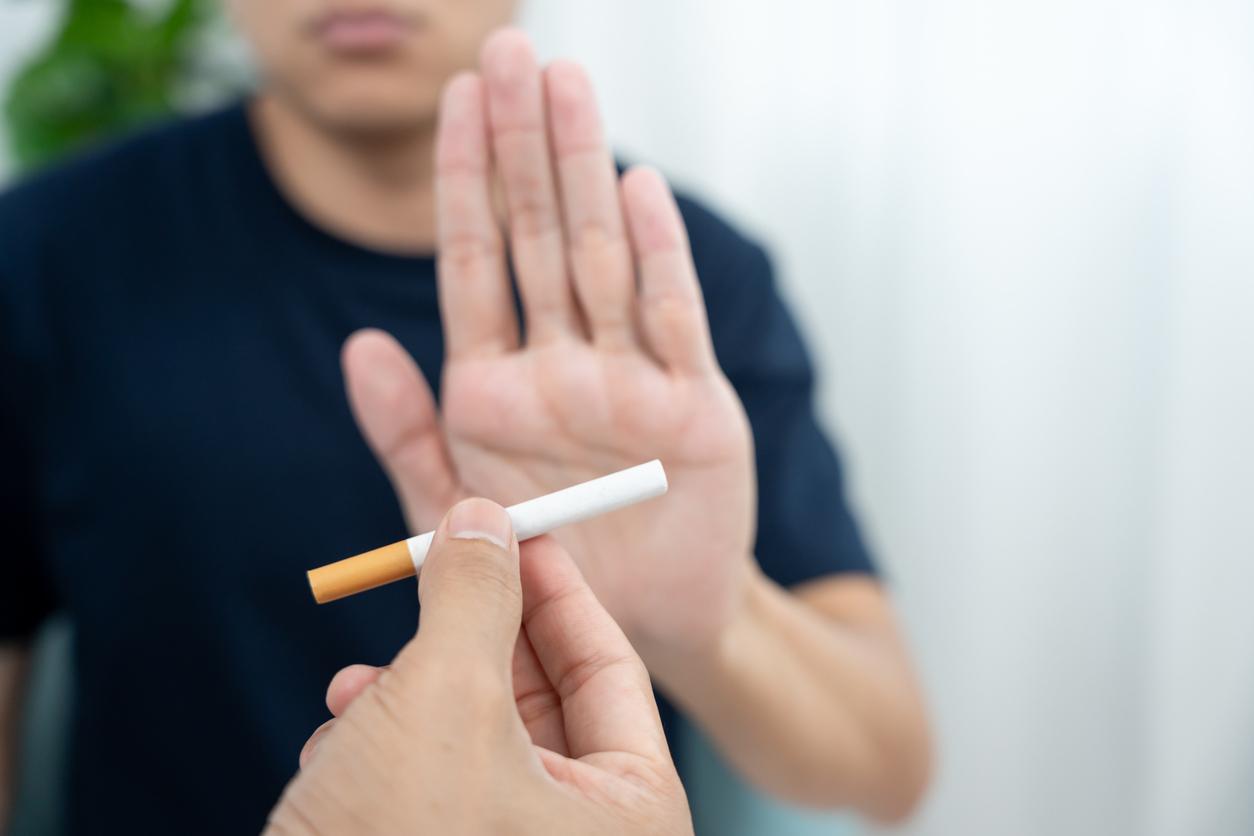If you are told that tobacco consumption causes many serious diseases such as cancers, cardiovascular diseases among others, you will not be taught anything. There are, however, many misconceptions about quitting smoking.
Fewer and fewer of us are addicted to cigarettes. In 2019, 24% of French people smoked every day according to figures from the Barometer of Public Health France. That is 1.4 points less than the previous year. This decline is the result of several factors. The increase in the price of the package, the reimbursement of nicotine substitutes, the strengthening of the fight against tobacco, among others. However, the cigarette still causes 75,000 deaths per year in our country. And quitting smoking is sometimes like mission impossible. Certain fears explain this vision. That of to gain weight For example. We are afraid of not being able to do it, of lacking the will, etc.
“Smokers are convinced they are to blame.It’s wrong… We must remember that the smoker is not a culprit, nor someone who lacks willpower. He’s a victim. A victim of the tobacco industry”, explains Professor Bertrand Dautzenberg, tobacco specialist at the Arthur Vernes Institute in Paris. Seen from this angle, it is already easier to try to get rid of what remains a real addiction.
Similarly, smokers who resume smoking should not feel guilty or ashamed of their relapses. They are even the rule and not the exception! On average, it is estimated that it takes at least two attempts on average.
According to other statistics still from the Public Health Barometer, 60% of smokers want to quit and 40% try to do so each year. But without help only 5% definitely succeed. The most important first thing is not to stop but rather to no longer want to smoke. The use of a specialist, whether pharmacist or doctor, can be a real effective solution. He will offer you the most appropriate method according to your personality and your degree of dependence. Among the proposed methods, there are all kinds.
Nicotine substitutes
Frequently prescribed, they prevent withdrawal symptoms caused by quitting smoking. That is to say irritability, anxiety, nervousness, insomnia, hunger, difficulty concentrating. They allow to bring a dose of nicotine in the body, variable according to the products, ideal to give up grilling a small one.
THE nicotine substitutes come in the form of patches, gums, lozenges, sprays or tablets. You can choose them according to your tastes and preferences, depending on what you find most pleasant. It is best to have your doctor assess the dose you need to increase your chances of success. Their effectiveness is recognized by the majority of specialists. Provided you submit to regular “checks” with your doctor to be able to go the distance. There are some side effects: skin irritation with the patches, disturbed sleep, nocturnal awakenings, or bizarre and delusional dreams in 40% of cases.
acupuncture
For smoking cessation, acupuncture only has a placebo effect. This method will act rather by bringing relaxation to the smoker, calm him down… but indirectly, as a complement. While it doesn’t work for everyone, it may work for some smokers (again thanks to the placebo effect). It is therefore reserved for those who want to be taken care of regularly by a practitioner. The sessions will represent a moment of relaxation that will help to better manage quitting smoking.
hypnosis
Again, hypnosis has not been scientifically proven to be effective. But neither has it proven its ineffectiveness. So again, this is a very personal question. We can be sensitive to the method of a practitioner and succeed in stopping thanks to this method, but as for acupuncture, we cannot guarantee its effectiveness at 100%… Self hypnosis is interesting not to resume. These are small exercises to practice alone at home, which can be learned from a professional or on certain videos available on the internet.
Learn more about hypnosis to quit smoking.
Sophrology
The interest of sophrology in quitting smoking is that it helps to accompany the person in his approach. The sophrologist works on managing the stress that can accompany quitting as well as on the smoker’s self-confidence. Through breathing and visualization exercises, the latter projects himself after quitting smoking and sees all the positive effects on his body.
Learn more about sophrology as an aid to quit smoking.
E-cigarette
The advantage of electronic cigarette it is that we keep the gesture. In addition, one can continue to have a normal social life. The only problem is that by keeping the gesture, you don’t learn to do without cigarettes, electronic or not. It can be supportive at first, but later it may be a good idea to switch to another method.
Champix
This medication acts on nicotinic receptors. It prevents nicotine from depositing on these receptors in question, which blocks the stimulation of the system that enhances the pleasure of smoking. Nausea, headaches, insomnia, or nightmares are part of the list of side effects. Since 2017, it has been reimbursed at 65% by social security. It is reserved for highly addicted smokers on which its effectiveness has been widely proven.
Smartphone apps
THE quit smoking app are psychological aids. They act as an accompaniment, stimulate the future ex-smoker on a daily basis. They can help in addition to another method, but alone, they can lose their effectiveness in the long term.
Cognitive and behavioral therapies
They make it possible to change habits and behaviors, by reducing stress, for example. Often, the latter is indeed at the origin of the regular consumption of tobacco. These therapies consist of offering, for example, elaborate breathing exercises when the pressure rises too much. It is a method that offers a long-term stop. The practitioner focuses on strengthening the patient’s ability to become totally abstinent. If they are very effective (provided you are diligent), they are still very badly reimbursed.
Thanks to Professor Bertrand Dautzenberg, Tobacco specialist at the Arthur Vernes Institute in Paris, author of The pleasure of quitting smokingpublished by First.
Read also:
- Why you shouldn’t smoke before (and after) sports
- Covid and smoking: what we know
- Lung cancer: regular scans to screen for subjects at risk?










